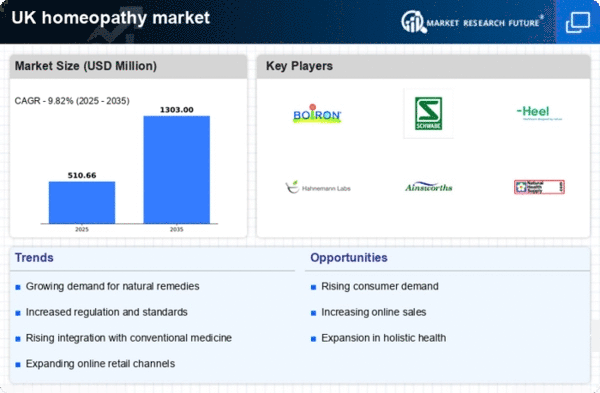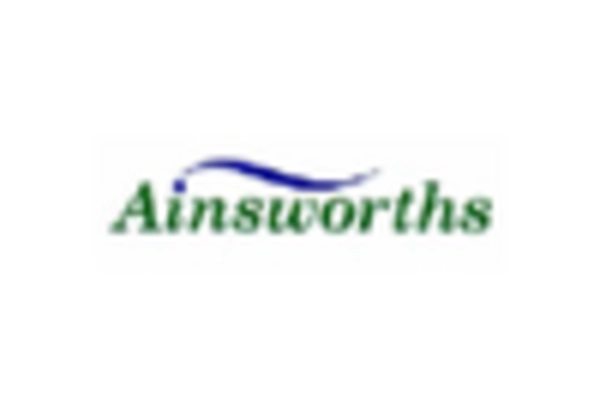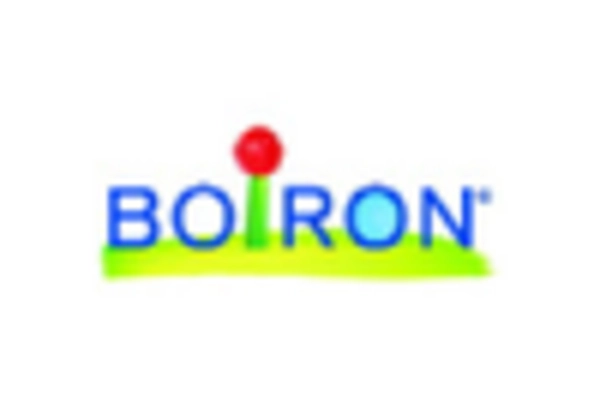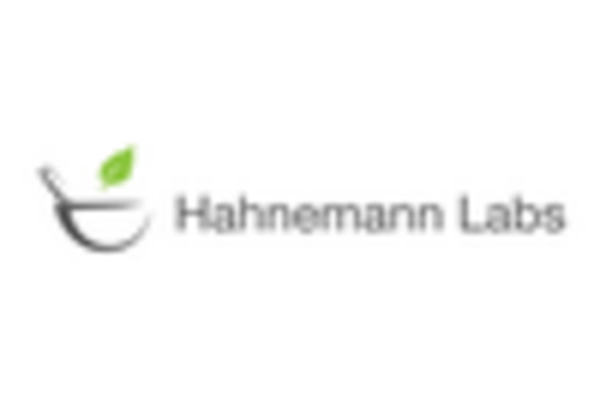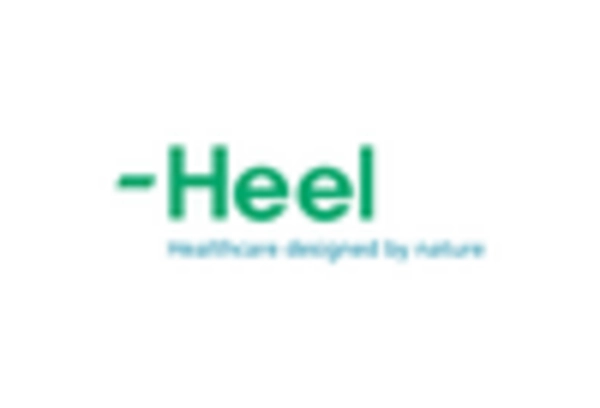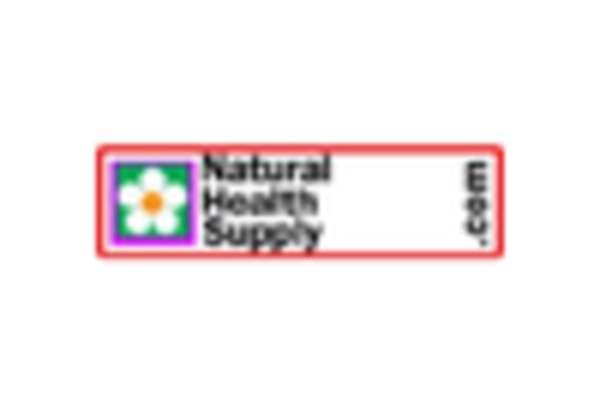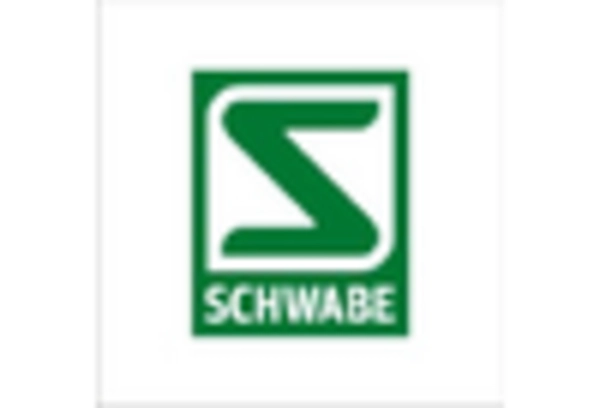Supportive Regulatory Environment
A supportive regulatory environment is emerging as a significant driver for the homeopathy market in the UK. Recent developments in regulations have aimed to ensure the safety and efficacy of homeopathic products, fostering consumer confidence. The UK government has implemented guidelines that promote transparency and quality in the homeopathy sector. This regulatory framework not only protects consumers but also encourages manufacturers to innovate and improve their offerings. As a result, the homeopathy market is likely to benefit from increased consumer trust and a more robust product range, contributing to its overall growth.
Increasing Awareness of Homeopathy
The growing awareness of homeopathy among the UK population appears to be a pivotal driver for the homeopathy market. Educational initiatives and campaigns by practitioners and organizations have contributed to a better understanding of homeopathic principles and practices. This heightened awareness is reflected in the increasing number of individuals seeking alternative treatments, with surveys indicating that approximately 15% of the UK population has used homeopathic remedies at least once. As consumers become more informed about the benefits and safety of homeopathy, the demand for these products is likely to rise, thereby positively impacting the homeopathy market.
Shift Towards Preventive Healthcare
A notable shift towards preventive healthcare in the UK is influencing the homeopathy market significantly. As individuals become more proactive about their health, they are increasingly seeking natural and holistic approaches to wellness. This trend is supported by data indicating that the preventive healthcare market is projected to grow at a CAGR of 7% over the next five years. Homeopathy, with its focus on treating the individual rather than just symptoms, aligns well with this preventive approach. Consequently, the homeopathy market is expected to benefit from this growing inclination towards preventive health solutions.
Rising Interest in Personalized Medicine
The rising interest in personalized medicine is likely to have a profound impact on the homeopathy market. Consumers are increasingly seeking tailored healthcare solutions that address their unique health needs. Homeopathy, which emphasizes individualized treatment plans based on a person's specific symptoms and constitution, fits well within this paradigm. Market Research Future indicates that the personalized medicine sector is expected to reach £2 billion in the UK by 2026. This trend suggests that as consumers prioritize personalized healthcare, the demand for homeopathic remedies may increase, thereby driving growth in the homeopathy market.
Integration of Homeopathy in Conventional Medicine
The integration of homeopathy into conventional medical practices is emerging as a crucial driver for the homeopathy market. Some healthcare professionals in the UK are beginning to recognize the potential benefits of combining homeopathic treatments with traditional medicine. This trend is evidenced by an increase in referrals to homeopaths from general practitioners, suggesting a growing acceptance of homeopathy as a complementary therapy. As more practitioners advocate for integrative approaches, the homeopathy market may experience enhanced credibility and increased consumer trust, potentially leading to higher market growth.


